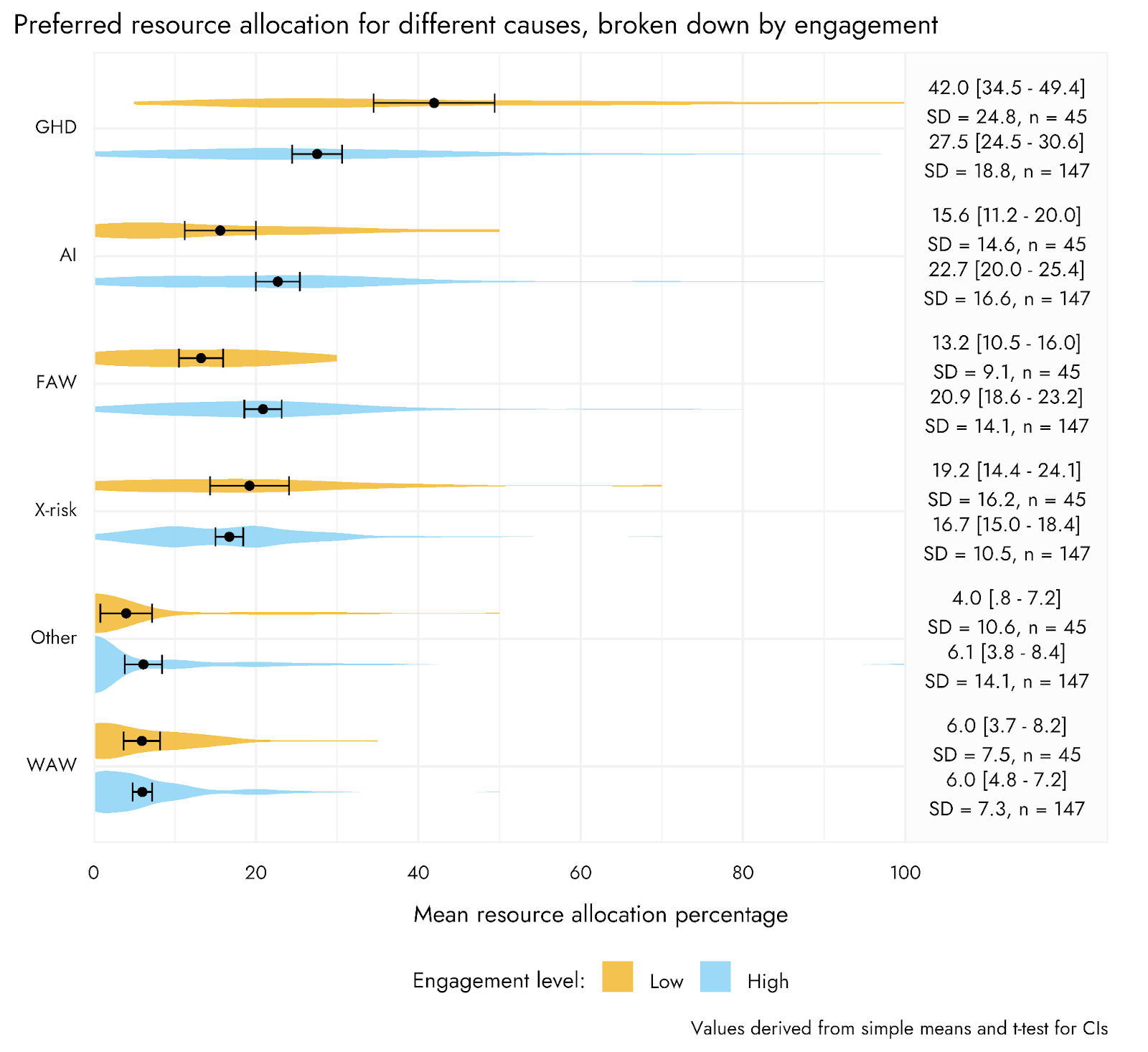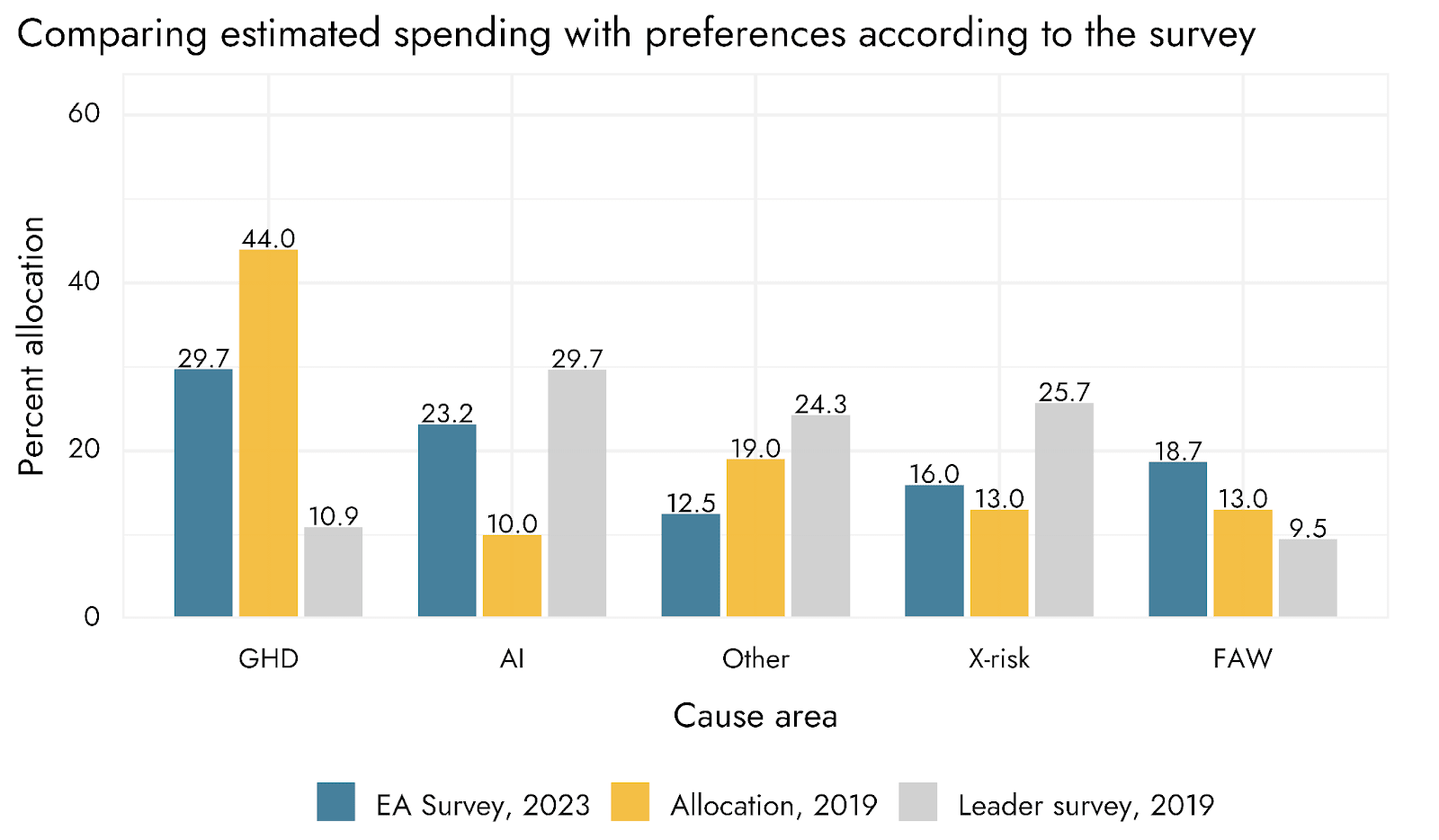When you comment on your vote on the debate week banner, your comment will appear on this thread. Use this thread to respond to other people's arguments, and discuss the debate topic.
You should also feel free to leave top-level[1] comments here even if you haven't voted. As a reminder, the statement is "It would be better to spend an extra $100m on animal welfare than on global health".
If you’re browsing this thread- consider sorting by “New” and interacting with posts that haven’t been voted or commented on yet. There are a lot of comments!
Also- perhaps don’t vote karma below zero for low effort submissions, we don’t want to discourage low effort takes on the banner.
- ^
The first comment in a thread is a top-level comment.



Good to know! I haven't actually read "Animal Liberation" or etc; I've just seen the word a lot and assumed (by the seemingly intentional analogy to racism, sexism, etc) that it meant "thinking humans are superior to animals (which is bad and wrong)", in the same way that racism is often used to mean "thinking europeans are superior to other groups (which is bad and wrong)", and sexism about men > women. Thus it always felt to me like a weird, unlikely attempt to shoehorn a niche philosophical position (Are nonhuman animals' lives of equal worth to humans?) into the same kind of socially-enforced consensus whereby things like racism are near-universally condemend.
I guess your definition of speciesism means that it's fine to think humans matter more than other animals, but only if there's a reason for it (like that we have special quality X, or we have Y percent greater capacity for something, therefore we're Y percent more valuable, or because the strong are destined to rule, or whatever). Versus it would be speciesist to say that humans matter more than other animals "because they're human, and I'm human, and I'm sticking with my tribe".
Wikipedia's page on "speciesism" (first result when I googled the word) is kind of confusing and suggests that people use the word in different ways, with some people using it the way I assumed, and others the way you outlined, or perhaps in yet other ways:
The 2nd result on a google search for the word, this Britannica article, sounds to me like it is supporting "my" definition:
That makes it sound like anybody who thinks a human is more morally important than a shrimp, by definition is speciesist, regardless of their reasons. (Later on the article talks about something called Singer's "principle of equal consideration of interests". It's unclear to me if this thought experiment is supposed to imply humans == shrimps, or if it's supposed to be saying the IMO much more plausible idea that a given amount of pain-qualia is of equal badness whether it's in a human or a shrimp. (So you could say something like -- humans might have much more capacity for pain, making them morally more important overall, but every individual teaspoon of pain is the same badness, regardless of where it is.)
Third google result: this 2019 philosophy paper debating different definitions of the term -- I'm not gonna read the whole thing, but its existence certainly suggests that people disagree. Looks like it ends up preferring to use your definition of speciesism, and uses the term "species-egalitarianists" for the hardline humans == shrimp position.
Fourth: Merriam-Webster, which has no time for all this philosophical BS (lol) -- speciesism is simply "prejudice or discrimination based on species", and that's that, apparently!
Fifth: this animal-ethics.org website -- long page, and maybe it's written in a sneaky way that actually permits multiple definitions? But at least based on skimming it, it seems to endorse the hardline position that not giving equal consideration to animals is like sexism or racism: "How can we oppose racism and sexism but accept speciesism?" -- "A common form of speciesism that often goes unnoticed is the discrimination against very small animals." -- "But if intelligence cannot be a reason to justify treating some humans worse than others, it cannot be a reason to justify treating nonhuman animals worse than humans either."
Sixth google result is PETA, who says "Speciesism is the human-held belief that all other animal species are inferior... It’s a bias rooted in denying others their own agency, interests, and self-worth, often for personal gain." I actually expected PETA to be the most zealously hard-line here, but this page definitely seems to be written in a sneaky way that makes it sound like they are endorsing the humans == shrimp position, while actually being compatible with your more philosophically well-grounded definition. Eg, the website quickly backs off from the topic of humans-vs-animals moral worth, moving on to make IMO much more sympathetic points, like that it's ridiculous to think farmed animals like pigs are less deserving of moral concern than pet animals like dogs. And they talk about how animals aren't ours to simply do absolutely whatever we please with zero moral consideration of their interests (which is compatible with thinking that animals deserve some-but-not-equal consideration).
Anyways. Overall it seems like philosophers and other careful thinkers (such as the editors of the the EA Forum wiki) would like a minimal definition, wheras perhaps the more common real-world usage is the ill-considered maximal definition that I initially assumed it had. It's unclear to me what the intention was behind the original meaning of the term -- were early users of the word speciesism trying to imply that humans == shrimp and you're a bad person if you disagree? Or were they making a more careful philosophical distinction, and then, presumably for activist purposes, just deliberately chose a word that was destined to lead to this confusion?
No offense meant to you, or to any of these (non-EA) animal activist sources that I just googled, but something about this messy situation is not giving me the best "truthseeking" vibes...